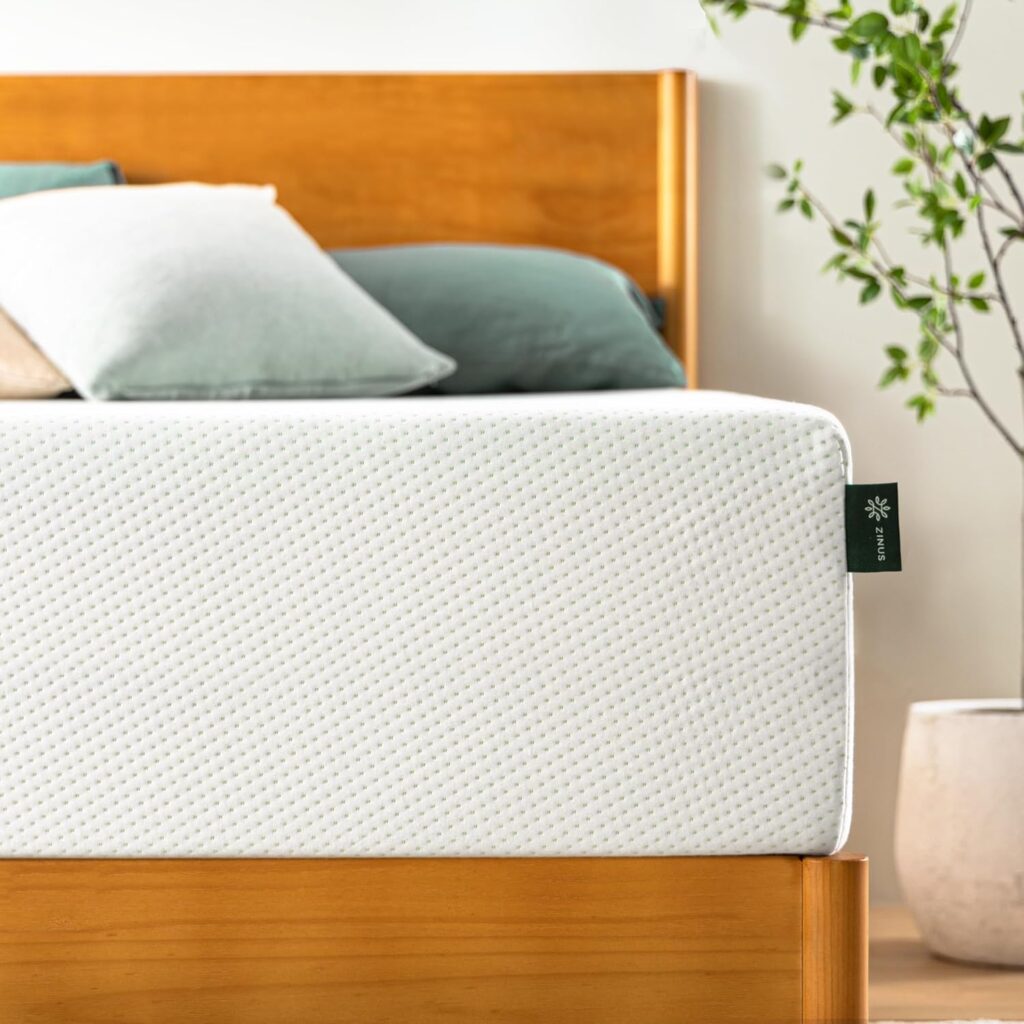This blog may contain affiliate links, meaning I earn a small commission if you make a purchase through these links, at no additional cost to you. As an affiliate, I only promote products and services I trust and believe will add value to my readers.
Imagine you’ve just finished an intense workout—maybe it was a long run, a weightlifting session, or a challenging spin class. You feel exhausted but accomplished, knowing that you’re on your way to becoming stronger and healthier. But have you ever thought about what happens after you step away from the gym? That’s where the magic of muscle recovery truly begins. And the secret ingredient in that magic? It’s sleep.
Whether you’re an athlete, a fitness enthusiast, or just trying to stay active, getting enough high-quality sleep is one of the most crucial elements for muscle recovery. Yet, it’s often the most overlooked aspect of any fitness routine. Let’s dig into why sleep matters so much, how it helps you recover, and even some products that could help you get the best rest possible.
Why Is Sleep Crucial for Muscle Recovery?
You might not realize it, but your body does most of its repair and growth while you sleep. When you’re asleep, particularly during the deeper stages, your body gets to work by repairing muscle tissues, growing new muscle fibers, and even consolidating energy for the next day’s activities. Here’s a deeper look into what happens while you’re sleeping:
1. Growth Hormone Production
Growth hormone is a key player in muscle recovery. This hormone, which is essential for muscle growth, tissue repair, and bone health, is primarily produced during deep sleep. If you’re missing out on high-quality sleep, your body won’t have enough growth hormone circulating to effectively heal those microtears you caused while exercising. Think of it like missing out on the main tool your body needs to rebuild itself.
2. Protein Synthesis
When you’re lifting weights or doing bodyweight exercises, you’re essentially creating small tears in your muscle fibers. Protein synthesis is the process your body uses to repair and build these fibers, making them stronger. A major chunk of protein synthesis happens while you sleep, and without it, you could face stagnation in your fitness progress.
3. Reduced Cortisol Levels
Cortisol, the stress hormone, has a knack for slowing down muscle recovery and promoting muscle breakdown. During a good night’s sleep, cortisol levels drop, giving your body a much-needed opportunity to focus on growth and repair. Lack of sleep, however, can increase cortisol levels, leading to muscle fatigue, inflammation, and even injury.
4. Energy Restoration
Beyond muscle growth and tissue repair, sleep helps restore your energy stores—specifically glycogen. Glycogen is what your muscles use for fuel during your workouts, and sleep is the prime time for refueling those reserves, ensuring you’re ready for whatever challenge you face next.
>>> Not sleeping well? A popular sleep aid is available now Amazon <<<
How Lack of Sleep Affects Muscle Recovery
On the flip side, not getting enough sleep can have serious consequences for your fitness progress. If you’re consistently losing out on quality sleep, you’re putting your body in a state of chronic stress. This can lead to:
- Increased Risk of Injury: When muscles don’t have the chance to fully repair, they become weak and susceptible to injury.
- Slower Recovery Time: You’ll notice more soreness, extended periods of fatigue, and possibly a decreased ability to complete your usual workout.
- Decreased Strength Gains: Your body won’t build new muscle as effectively, which means less progress toward your fitness goals.
Tips for Improving Sleep Quality for Better Recovery
So, now that we know how crucial sleep is for muscle recovery, how can you make sure you’re getting the best sleep possible?
1. Create a Sleep-Friendly Environment
The space where you sleep plays a major role in how well you sleep. To make your bedroom as conducive as possible for quality rest:
- Use a Comfortable Mattress and Pillow: The quality of your mattress matters. If your bed isn’t comfortable, consider an upgrade. For example, highly-rated mattresses like the Zinus Green Tea Memory Foam Mattress are very popular on Amazon and come highly recommended for comfort and support.
- Blackout Curtains: Light is one of the biggest disruptors of sleep. Using blackout curtains can help create a dark environment, perfect for deep, uninterrupted sleep.
2. Establish a Sleep Routine
Your body loves routine. Try to go to bed and wake up at the same time every day—even on weekends. This helps your body clock get into a rhythm, making it easier to fall asleep and wake up feeling refreshed.
3. Supplement Wisely
Sometimes, life makes it tough to wind down at the end of the day. In such cases, you could consider supplements like magnesium or melatonin to help you relax and encourage better sleep. For example, the Nature Made Melatonin Tablets are highly rated for helping with sleep onset.
4. Avoid Stimulants in the Evening
If you enjoy a cup of coffee after dinner, it might be the very thing keeping you from restful sleep. Caffeine can linger in your system for hours, so it’s wise to avoid it at least 6 hours before bedtime.
The Role of Naps in Muscle Recovery

What if you didn’t get enough sleep last night? Naps can be a great tool for boosting muscle recovery, provided they are used correctly. Short naps of around 20-30 minutes can help reduce fatigue, enhance alertness, and give your muscles a chance to rest. However, keep them early in the afternoon to avoid interfering with your night-time sleep schedule.
Recommended Products for Sleep and Muscle Recovery
There are a few products that can aid in your sleep and muscle recovery journey:
- Foam Roller: To prevent muscle tightness from interrupting your sleep, consider foam rolling before bed. Foam rollers, like the popular TriggerPoint GRID Foam Roller, can help loosen up tight muscles and promote relaxation.
- Weighted Blanket: Some people swear by weighted blankets for better sleep quality. The YnM Weighted Blanket is a top-rated product on Amazon that can help calm your nervous system and help you drift off more easily.
- White Noise Machine: If you find it difficult to fall asleep because of environmental noise, a white noise machine could make all the difference. The LectroFan High Fidelity White Noise Machine is a highly-rated option that provides a variety of soundscapes to block out distractions.
- Sleep Tracking Device: Understanding your sleep cycle can help you make better choices for recovery. Devices like the Fitbit Charge 5 allow you to monitor your sleep stages and give insights into how you can improve.
Nutrition and Sleep for Muscle Recovery
Beyond getting enough sleep, what you consume during the day can have a significant impact on the quality of your rest and recovery. Protein-rich foods like eggs, chicken, and legumes can provide the building blocks for muscle repair. Consuming casein protein before bedtime can be especially beneficial, as it releases amino acids slowly throughout the night. A popular product for this is the Optimum Nutrition Gold Standard Casein Protein Powder, which is widely loved by fitness enthusiasts.
Avoid heavy meals right before bedtime, as this can interfere with your ability to get restful sleep. However, having a small, protein-rich snack or something with tryptophan (like a banana or a handful of nuts) could help improve sleep onset.
Strategies for Better Sleep Hygiene
You might have heard of the term “sleep hygiene” before. It refers to the habits and practices that promote consistent, uninterrupted sleep. Here are some essential sleep hygiene practices to follow:
- Reduce Screen Time Before Bed: The blue light emitted by phones, tablets, and TVs can disrupt melatonin production. Try to avoid screens at least an hour before bedtime. Instead, wind down with a book or some light stretching.
- Keep the Temperature Cool: Your body needs to cool down to fall into a deep sleep. Keeping your room between 60-67°F (15-19°C) can help facilitate this. A product like the BedJet Climate Control System could help you regulate your bed temperature for maximum comfort.
- Limit Alcohol Consumption: While alcohol can make you feel sleepy initially, it actually disrupts your sleep cycle later on in the night. It’s best to avoid it if you want to maximize your muscle recovery.
The Science Behind REM and Deep Sleep
There are different sleep stages, but REM (Rapid Eye Movement) sleep and deep sleep are the two phases that have the most significant impact on muscle recovery. During deep sleep, your body is in full repair mode, producing growth hormone and rebuilding muscles. REM sleep, on the other hand, is when your brain consolidates memories and stores information, which is crucial for skill-based sports or learning new exercises.
The Bottom Line
Sleep isn’t just an indulgence or a break from daily life—it’s an essential component of muscle recovery and overall health. Skipping out on sleep could mean giving up progress toward your fitness goals, increasing your risk of injury, and hindering your body’s natural ability to recover and grow stronger. By making quality sleep a priority, you’re giving your body the best chance to repair, grow, and be ready for the next challenge.
So, as you think about your fitness routine, remember that what you do in the gym is only part of the equation. The real progress happens while you sleep, and by putting in the effort to make your sleep a priority, you’ll reap the benefits in your workouts, your muscle gains, and your overall well-being.
Now that you understand the importance of sleep for muscle recovery, maybe it’s time to examine your own sleep habits. Are you getting enough quality rest? What changes can you make in your environment or routine to improve your sleep? Take a look at some of the products mentioned and see if they might help you rest and recover like a pro.
